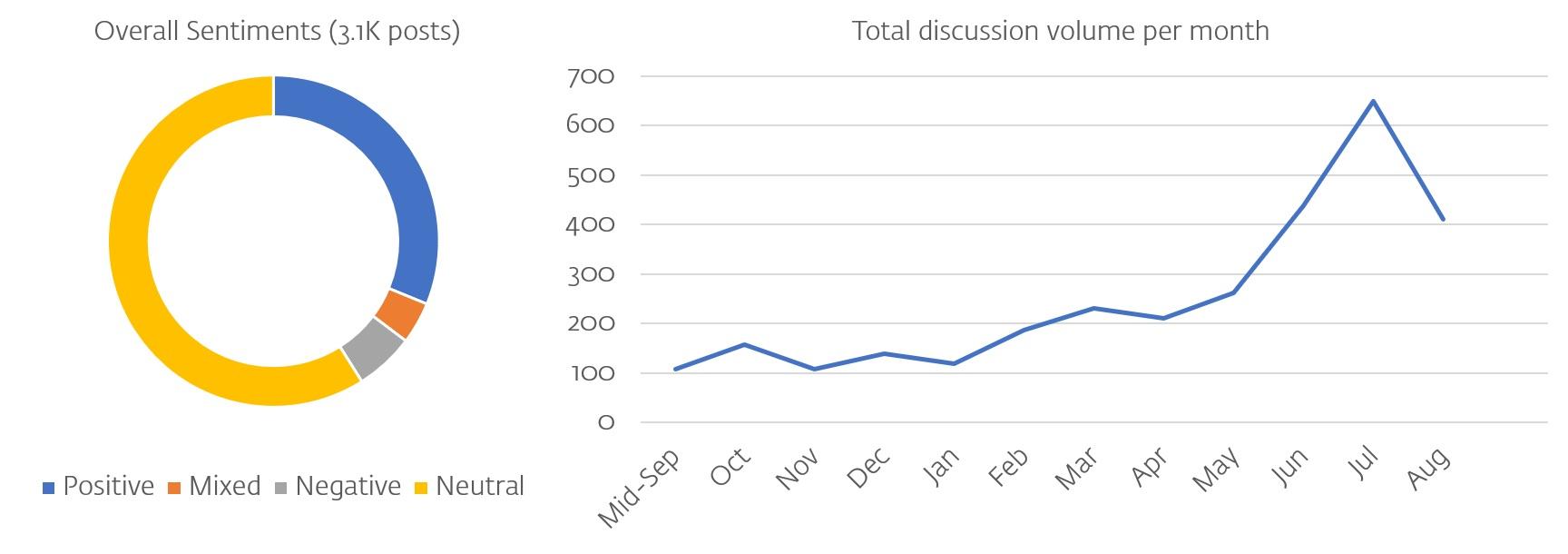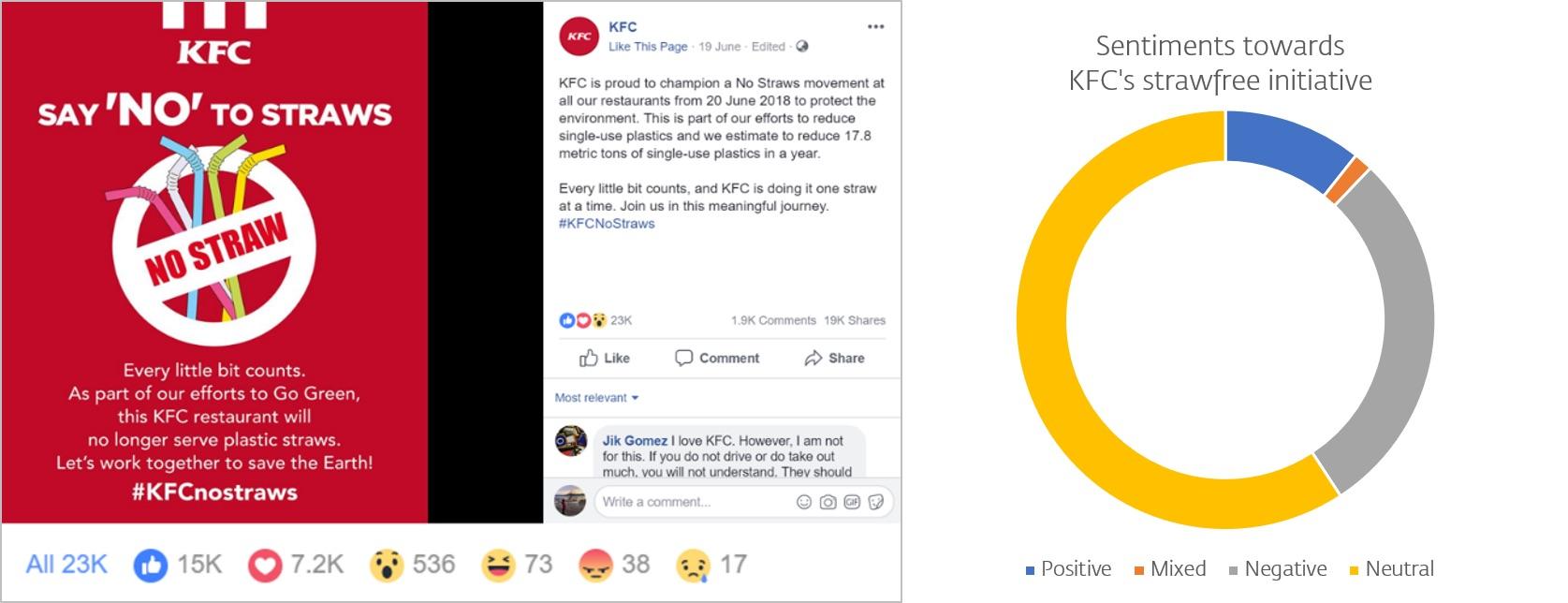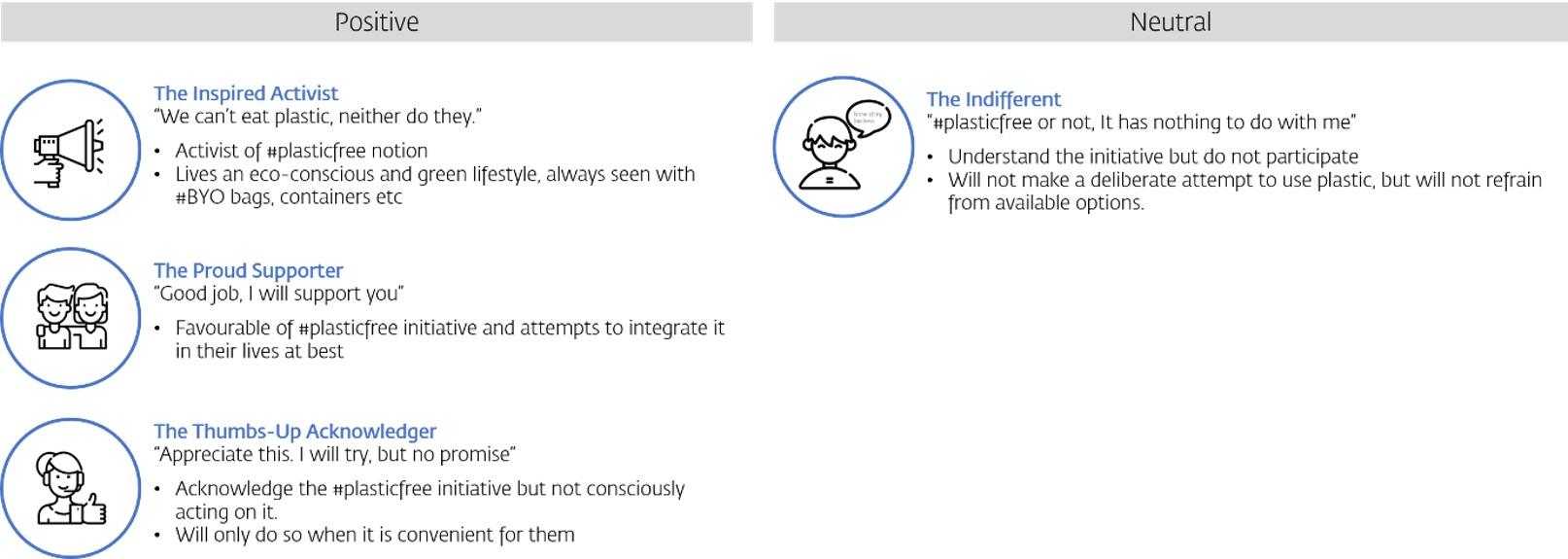

Embracing the trend of mindful consumerism, brands are actively participating in the green movement and promoting #plasticfree initiatives, particularly within the F&B scene in Singapore. While some brands receive applause for their genuine environmental consciousness, others face negative perceptions from consumers who view their efforts as mere “marketing or cost-saving” strategies. This shift towards eco-friendly practices reflects the growing importance of sustainable and responsible brand marketing in today’s consumer landscape.
Amidst the growing awareness of environmental issues, marketers are seeking strategies to elevate their brands beyond public relations and demonstrate a genuine commitment to sustainability. In this article, we delve into the consumer archetypes influencing the plastic-free sentiment landscape and explore how brands can strategically integrate sustainable practices into their brand marketing, fostering consumer engagement in the battle against plastic waste.
Over the past year, there were 3.1K conversations generated across online social and media platforms in Singapore regarding the plastic ban and ‘Bring Your Own’ (BYO) lifestyle. Although the majority (59%) of the conversations are neutral, a substantial group of consumers (31%) are observed to be receptive towards the #plasticfree movement. The number of conversations around “plastic-free” initiatives has also continually increased with over 600 posts recorded in July 2018.

As with any other brands that take the first stride in championing a cause, KFC’s No Straw initiative launched in June 2018 received a tremendous amount of consumer feedback. The move was applauded by some consumers and recognized as KFC’s first baby step towards an eco-conscious environment. There were also negative sentiments, however, about the lack of alternatives to the straw and the brand’s expectation that its consumers would adapt to the change so quickly.

To effectively engage consumers on the #plasticfree initiative, brands need to first understand the different consumer behaviours and attitudes towards the topic. Through social listening, we have identified 8 consumer archetypes by decoding consumers’ responses to brands’ plastic-free initiatives in Singapore.


Beyond the identification of different consumer archetypes, brands also need to understand the cultural insights that propel the varied responses, especially towards the neutral and negative end. Brands are then able to make their mark around the #plasticfree initiatives in Singapore.
Since its founding years, Singapore has been a stable and structured society that built its foundation on equality. This has developed a sense of entitlement and resistance to change amongst us, which then leads to indignance about a proposed initiative if a compromise or behavioural change is required. Though most of us understand that complaints do not necessarily improve the situation, we still find the act of complaining justified when an expression is “on the record”.
To counter the complaint mentality, brands should take into consideration potential consumer reactions and determine ways to resolve these issues before championing a cause. It is to reduce the perception of unjust treatment and to foster a sense of camaradarie with consumers by sharing the objective and step-by-step plans to encourage behavioural modification.
For example, when Starbucks announced its plan to go straw-free by 2020, the brand also introduced an alternative sippy cup lid and paper straws as substitutes. By communicating the plan ahead of the implementation, Starbucks could observe consumer reactions and take time to gradually convince the consumers to modify their consumption behaviour. This is important to “The Sceptics” and “The Complaint King/Queen” group who seeks valid justification to address their indignance.
Singaporeans are known to be embracing and respectful of others’ religion and culture. However, there is a constant cognitive dissonance between the “mind my own business” mentality and the “be kind and gracious” mentality. This stems from our innate desire for efficiency; where a deviation to lend a helping hand can be disruptive. A recent study involving Singapore consumers discovered that people are only willing to alter their behaviour to be more environmentally conscious only when they feel that the action has a direct impact on their loved ones.
Leveraging this insight, brands have the opportunity to heighten consumer engagement in the #plasticfree lifestyle by emphasizing how waste directly impacts their loved ones. This can be achieved through the dissemination of informative and thought-provoking content that effectively encourages reduced and recycled plastic usage. Recognizing that only 6% of plastic waste is currently recycled in the country, the most effective path toward a sustainable future involves reducing overall plastic wastage. Advocacy groups committed to these causes have played a significant role in creating and amplifying these messages. To generate a more compelling call-to-action, brands must not only endorse but also embody these values in their approach to brand marketing.

Beyond consumer education messages, brands can also influence “The Indifferent”, “The Smart Workaround” and “The Sceptics” consumer groups by incentivising them. For example, coffee chains like Starbucks, CBTL, Joe & Dough take 50 cents off a bill when consumers bring their own tumblers for every purchase. UnPackt, a zero-waste grocery store, encourages consumers to bring their own containers and purchase items at an appropriate quantity. Sourcing their items in bulk, UnPackt transfers the saved costs to consumers by pricing the items approximately 5% lower than competitors. Through such initiatives, positive reinforcement can work to counter inertia and drive action towards the cause.
In essence, our commitment to the environment drives us to protect it in diverse ways. While plastic products have undeniably enhanced convenience in various aspects of our lives, including F&B consumption, shopping, and waste disposal, adapting our consumption habits can be challenging but not insurmountable. The path to sustainability is a profound and ongoing journey. Brands play a pivotal role, collaborating closely with consumers to realize the plastic-free objective. Through the consumer archetypes highlighted earlier, we aim to guide brands in their green endeavors and help them implement strategies for a more effective execution of their #plasticfree initiatives in the realm of brand marketing.
At Labbrand, we aid and support brands that innovate towards a sustainable future. Feel free to contact us if the suggestions have worked for you, or if you have any questions on the 8 consumers archetype towards a #plasticfree lifestyle.
A Labbrand Group Company © 2005-2024 Labbrand All rights reserved
沪ICP备17001253号-3To improve your experience, we use cookies to provide social media features, offer you content that targets your particular interests, and analyse the performance of our advertising campaigns. By clicking on “Accept” you consent to all cookies. You also have the option to click “Reject” to limit the use of certain types of cookies. Please be aware that rejecting cookies may affect your website browsing experience and limit the use of some personalised features.